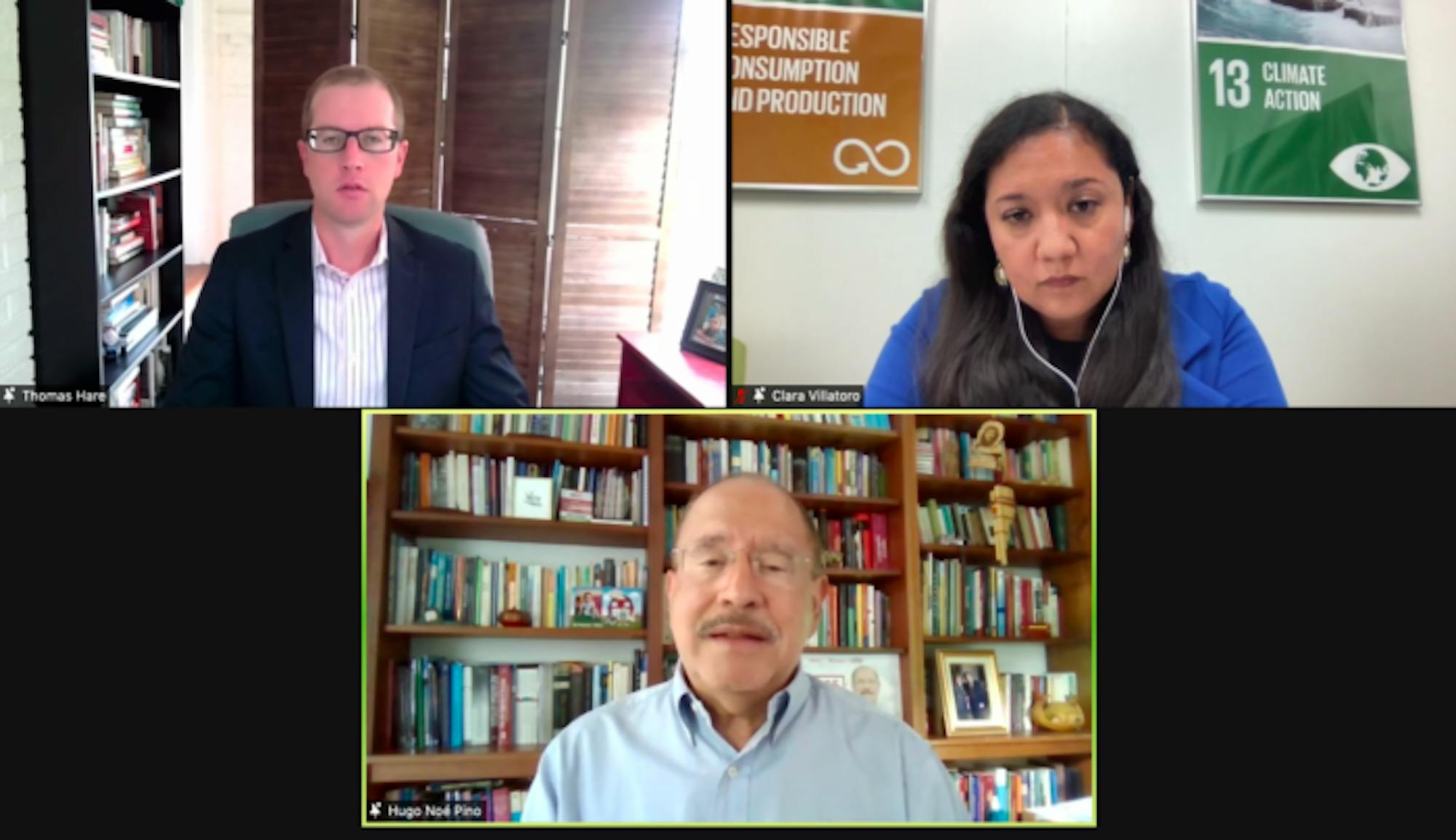ThinkND continued its three-part “Beyond the Border” series via Zoom on Wednesday after kicking off the series last week.
Like last week’s series opener, the program was a zoom webinar format moderated by Tom Hare, a senior technical associate at the Notre Dame Pulte Institute for Global Development. This week’s program featured guests Hugo Noé Pino, a Honduran economist, and Clara Villatoro, a former journalist in Central America who is now affiliated with the Pulte Institute.
Compared to last week, which Hare said focused on the viewpoint of researchers “looking as objectively as possible at the challenges of the region,” this week’s program targeted a more personal side of migration.
“I will never forget the funeral for a friend’s brother who was shot just while driving his taxi,” Hare said while opening the discussion. “Once you experience something like that, it is hard not to ask yourself, ‘What can I possibly do to help? What is my role in the situation?’”
Hare said researchers and policymakers try to keep a healthy distance at times from their topics, “but today, we’re going to go in a bit of a different direction,” he said.
Villatoro’s father lived in the U.S. for five years when she was a child for economic reasons. She and her siblings, however, stayed back in El Salvador. Villatoro explained how the decision to not migrate early in their lives affected their identities.
“He didn’t want my siblings and I to come to the U.S,” she said. “He wanted us to stay in El Salvador, despite the hard situation, because he thought that our identity was important.”
She went on to say her non-linear experiences with migration has shaped her view of it.
“Migration is very complex. There are many elements we have to take into the conversation,” she said.
Villatoro pointed out that though identifying and working on solving the drivers of migration is important, migrants who are already here in the U.S. are often ignored.
“I think we should work on how to support those,” she said.
She also offered a critique of the common use of the term “peace” in developmental studies.
“Peace is something that for some people can be very abstract — even for me,” she said.
The concept of peace, she argued, isn’t easily pinned down to one definition.
“It’s not academics, it’s what this specific migrant understands as peace,” she said.
Pino, who is running for Congress in Honduras, focused more on the responsibility of governments in causing and solving issues for the people of Central America.
“Unfortunately, hopelessness is still prevalent in the region. Governments in all parts of Central America don’t respond to the needs of the population,” he said, pointing to job scarcity, high violence and public policies and taxation being inefficient.
He also criticized U.S. policy on migration, which he argued has been inconsistent and ineffective.
“The U.S. has no real strategy to deal with the problems of the region, and that’s made it very difficult to have positive results,” Pino said.
Pino promoted his own campaign as being a source of hope.
“I don’t believe it will be easy, but at least I, along with other members of my party, will try to make positive changes if elected to Congress,” he said.
The final part of the “Beyond the Border” series entitled “Creating action for safe, dignified migration” is scheduled for 1 p.m. Oct 13 via Zoom.
Lecture series expands on personal connections to Central American migration
Hugo Noé Pino, a Honduran economist, and Clara Villatoro, a former journalist in Central America who is now affiliated with the Pulte Institute, joined ThinkND for part two of its “Beyond the Border” lecture series.









